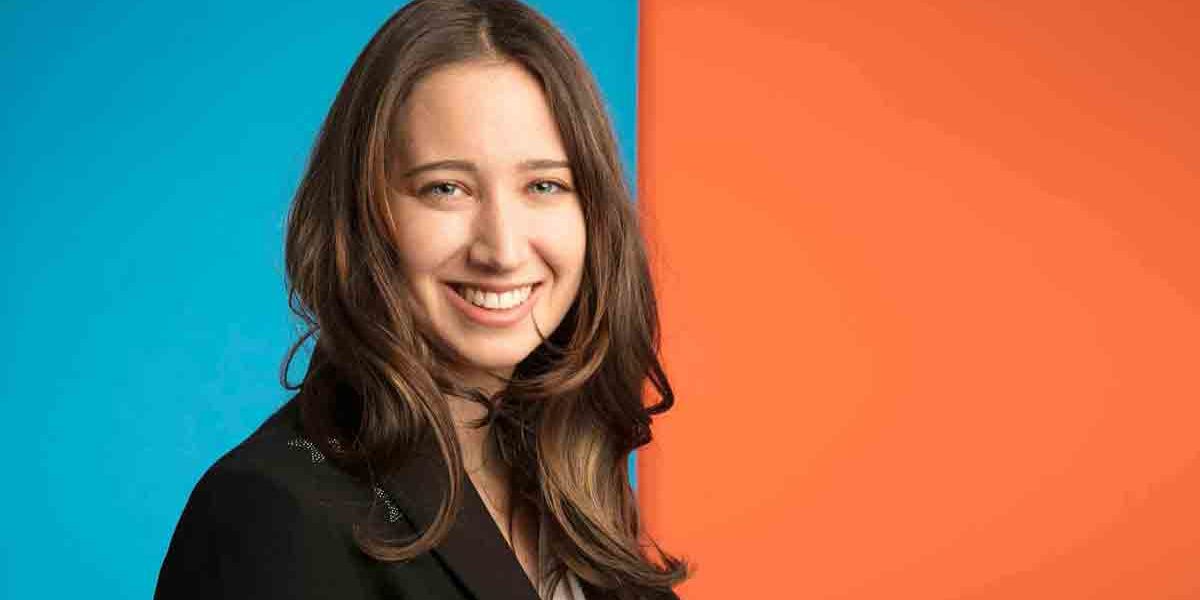The largest bank in the United States, JPMorgan Chase & Co., is accusing young Jewish entrepreneur Charlie Javice of conning it into purchasing her company for $175 million by fabricating millions of its supposed clients.
In a lawsuit filed by the bank last month, it accused the once promising CEO featured on Forbes’ 30 Under 30 list of engaging in an elaborate scheme to exaggerate the list of clients of her college financial planning startup, Frank, which JPMorgan purchased in September 2021.
The bank accused Javice and Frank’s former chief growth and acquisition officer Olivier Amar of faking nearly four million clients and fooling its due-diligence team by hiring a data science professional to hide their actions, creating millions of fake profiles on the platform.
“To cash in, Javice decided to lie, including lying about Frank’s success, Frank’s size and the depth of Frank’s market penetration,” the suit read.
Javice’s lawyers, in turn, have denied the accusations against their client and have filed a lawsuit against JPMorgan for allegedly trying to avoid paying her.
The now 30-year-old established Frank in 2016, when she was just 24. With a stated goal of helping college students file financial aid forms and save billions in tuition, Frank and its young founder grabbed the attention of the world.
But according to JPMorgan, it was mostly a hoax, or at least an extremely exaggerated success story. The bank claims that rather than the 4.25 million college students Frank claimed to have as clients by the end of 2021, it never had more than 250,000.
According to a New York Times report, Javice continued to enjoy sympathetic coverage from leading news outlets, including Forbes, Fast Company Magazine, Medium and Insider despite repeated warning signs.
The US Department of Education took notice of Frank soon after it was founded. In its early days, the company offered college students financial aid for their tuition on a website called frankfafsa.com.
FAFSA stands for Free Application for Federal Student Aid and is a registered trademark that was used by Frank without permission, the department said at the time. As part of a settlement agreement reached in 2018, Frank handed over the web address to the department and switched to an alternative web address.
At around the same time, an Israeli co-founder of Frank, Adi Omesy, sued Javice over wage theft in Israel and received compensation.
But this did not stop her overwhelmingly positive media coverage.
In 2018, Business Insider ran an article titled: “A 26-year-old founder has a solution to what Bill Gates calls an ‘unnecessary roadblock’ to college — and her startup is helping students get thousands off their tuition.”
In the article, Javice claimed that Frank had saved its users $28,000 on tuition on average.
However, in an article published by the outlet following JPMorgan’s lawsuit against Javice, it cited student-aid expert Mark Kantrowitz as saying that Frank was only simplifying the process of filing the FAFSA form for students.
“Frank did nothing that would have affected the amount of aid the students would have received had they filed the FAFSA on their own,” Kantrowitz told Insider. “That would not have led to a doubling of the amount of financial aid.”
He added that Frank was making up figures “at random” when describing the amount of aid received by its users.
Javice’s close relationship with the media started in 2011, when she appeared on Fast Company’s 2011 list of 100 Most Creative People for her role in an earlier startup she founded called PoverUp.
Established as a non-profit, PoverUp’s stated goal was to offer loans to entrepreneurs in poor countries and help lift them out of poverty, using small contributions offered by college students.
But an Insider investigation found no evidence of PoverUp ever registering as a nonprofit. The outlet also cited a former board member of the company as saying that it never got much traction, contradicting Javice, who in 2013 said the company had raised $300,000 in loans.
Javice soon gave up the idea and continued to establish Tapd, a company that sought to connect young professionals with job opportunities via text messages.
The company was later rebranded as Frank, following financial difficulties that at one point forced Javice to fire her entire team. Still, Javice managed to portray the challenges as a teaching moment and frame it as part of her ultimate success story.
In an email addressed to an online magazine in 2020 and obtained by Insider, Frank’s public relations representative described Frank’s story as “miraculous,” and noted that Javice’s “first company fizzled after 18 months” and she still managed to “convince [investors] to fund her next company, Frank.”







